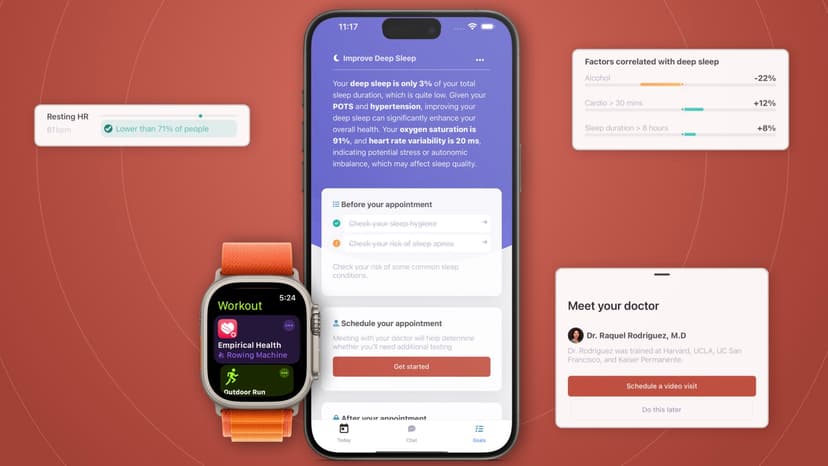Magnesium is a vital mineral that plays many roles in keeping our bodies healthy. From supporting muscle and nerve function to helping with energy production, magnesium is essential for our well-being. This article will guide you through the benefits of magnesium, where to find it in your diet, the different types of supplements available, and how to use them safely.
Key Takeaways
- Magnesium is crucial for muscle, nerve, and energy functions.
- A balanced diet rich in nuts, seeds, and leafy greens can help you get enough magnesium.
- Magnesium supplements come in various forms, so it's important to choose the right one for your needs.
- Too much magnesium can cause side effects like diarrhea and stomach cramps.
- Always consult with a healthcare provider before starting any new supplement.
The Importance of Magnesium for Overall Health
Role of Magnesium in the Body
Magnesium is a mineral that's crucial for many of the body's functions. It helps with muscle and nerve function, keeps the heartbeat steady, and supports a healthy immune system. Magnesium also helps bones stay strong. Without enough magnesium, the body can't work as well.
Recommended Daily Intake
The amount of magnesium you need each day depends on your age and gender. Here's a simple table to show how much you need:
| Age Group | Recommended Daily Intake (mg) |
|---|---|
| Children (1-3 years) | 80 |
| Children (4-8 years) | 130 |
| Children (9-13 years) | 240 |
| Teens (14-18 years) | 410 (boys), 360 (girls) |
| Adults (19-30 years) | 400 (men), 310 (women) |
| Adults (31+ years) | 420 (men), 320 (women) |
Signs of Magnesium Deficiency
Not getting enough magnesium can lead to some health problems. Here are a few signs to watch out for:
- Muscle cramps or twitches
- Fatigue and weakness
- Nausea or loss of appetite
- Abnormal heart rhythms
If you think you might be low on magnesium, it's a good idea to talk to a healthcare provider. They can help you figure out the best way to get more magnesium in your diet.
Health Benefits of Magnesium
Magnesium for Stress and Anxiety
Magnesium plays a crucial role in regulating neurotransmitters that send signals throughout the brain and nervous system. Adequate magnesium levels can help reduce stress and anxiety, promoting a sense of calm and well-being. It may also help improve mood and reduce symptoms of depression.
Cardiovascular Health Benefits
Magnesium is essential for maintaining a healthy heart. It helps regulate heart rhythm, supports proper muscle function, and relaxes blood vessels, which can lower blood pressure. Additionally, magnesium can help increase HDL ("good") cholesterol levels, reducing the risk of heart disease and heart attacks.
Magnesium and Sleep Quality
Magnesium can improve sleep quality by regulating the production of melatonin, the hormone responsible for sleep-wake cycles. It also helps relax muscles and calm the nervous system, making it easier to fall asleep and stay asleep. People with adequate magnesium levels often experience deeper and more restful sleep.
Ensuring you get enough magnesium can have a significant impact on your overall health, from reducing stress to improving heart health and sleep quality.
Dietary Sources of Magnesium
Magnesium-Rich Foods
Magnesium is found in a variety of foods, making it easy to include in your diet. Whole foods are the best sources of magnesium because processing can remove this important mineral. Some top magnesium-rich foods include:
- Green, leafy vegetables like spinach
- Nuts such as almonds and cashews
- Seeds like pumpkin and chia seeds
- Legumes including beans, peas, and lentils
- Whole grains such as brown rice and whole wheat
Magnesium in Nuts and Seeds
Nuts and seeds are particularly high in magnesium. They are not only nutritious but also make for a convenient snack. Here are some examples:
| Food | Magnesium Content (mg per 1 oz) |
|---|---|
| Almonds | 80 |
| Cashews | 74 |
| Pumpkin seeds | 150 |
| Chia seeds | 95 |
Magnesium in Leafy Greens
Leafy green vegetables are another excellent source of magnesium. These vegetables are also rich in other essential nutrients, making them a great addition to any meal. Some magnesium-rich leafy greens include:
- Spinach
- Kale
- Swiss chard
- Collard greens
Including a variety of these foods in your diet can help you meet your daily magnesium needs naturally.
Magnesium Supplements: What You Need to Know
Types of Magnesium Supplements
Magnesium supplements come in various forms, each with its own benefits. Some common types include magnesium citrate, magnesium glycinate, and magnesium oxide. Choosing the right type can affect how well your body absorbs the mineral. For example, magnesium citrate is often recommended for better absorption.
Choosing the Right Supplement
When selecting a magnesium supplement, consider factors like bioavailability and potential side effects. It's also important to consult with a healthcare provider to determine the appropriate dosage for your needs. Here are some tips:
- Look for supplements with high bioavailability.
- Check for potential allergens.
- Read reviews and consult healthcare providers.
Dosage and Usage Guidelines
The recommended dosage of magnesium supplements can vary based on age, gender, and health conditions. Generally, adults need between 310-420 mg per day. Always follow the dosage instructions on the supplement label and consult your healthcare provider for personalized advice.
Taking the right amount of magnesium is crucial for avoiding side effects and maximizing benefits. Always consult a healthcare provider before starting any new supplement.
Potential Side Effects and Risks of Magnesium
Common Side Effects
Magnesium supplements are generally safe, but they can cause some side effects, especially when taken in high doses. Common side effects include diarrhea, nausea, and stomach cramps. These issues are more likely with certain types of magnesium, like magnesium oxide and magnesium chloride.
Risks of Overconsumption
Taking too much magnesium, especially from supplements, can lead to serious health problems. High doses can cause kidney issues, low blood pressure, and even heart problems. In extreme cases, it can lead to a loss of central nervous system control and cardiac arrest.
Interactions with Medications
Magnesium can interact with certain medications, making them less effective or causing harmful effects. This includes diuretics, heart medications, and antibiotics. Always check with a healthcare provider before starting magnesium supplements if you are on any medication.
It's important to consult with a healthcare professional before taking magnesium supplements, especially if you have any medical conditions or are taking other medications.
Safety Tips for Using Magnesium Supplements
Consulting with Healthcare Providers
Before starting magnesium supplements, always consult with a healthcare provider. This is especially important if you have any medical conditions or are taking other medications. Some drugs can interfere with how your body absorbs magnesium, and magnesium can also affect the effectiveness of certain medications.
Monitoring Magnesium Levels
It's crucial to keep an eye on your magnesium levels. Regular check-ups can help ensure you're not getting too much or too little. Your doctor can recommend blood tests to monitor these levels and adjust your dosage if needed.
Safe Storage and Handling
Store magnesium supplements in a cool, dry place, away from direct sunlight. Keep them out of reach of children and pets to prevent accidental ingestion. Always follow the storage instructions on the supplement label to maintain their effectiveness.
Taking magnesium supplements can be beneficial, but it's important to do so safely. Always follow your healthcare provider's advice and monitor your health regularly.
Conclusion
Magnesium is a vital mineral that plays many important roles in our bodies. It helps with muscle function, keeps our bones strong, and supports our heart health. You can get magnesium from many foods like nuts, seeds, and leafy greens. If you don't get enough from your diet, supplements are available, but it's important to use them safely. Always talk to a doctor before starting any new supplement. Understanding magnesium's benefits and sources can help you make better choices for your health.
Frequently Asked Questions
What is magnesium and why is it important?
Magnesium is a mineral that helps your body in many ways. It supports muscle and nerve function, keeps your heart steady, and helps make bones strong.
How much magnesium should I take daily?
The amount of magnesium you need depends on your age and gender. Generally, adult men need about 400-420 mg per day, while adult women need about 310-320 mg per day.
What foods are high in magnesium?
Foods rich in magnesium include nuts, seeds, leafy green vegetables, whole grains, and some fish like salmon and mackerel.
Can I get too much magnesium?
Yes, taking too much magnesium, especially from supplements, can cause nausea, cramps, and diarrhea. It's best to stick to the recommended amounts.
Are there any side effects of magnesium supplements?
Some people might experience stomach upset, nausea, or diarrhea when taking magnesium supplements. It's important to follow dosage guidelines.
Should I talk to a doctor before taking magnesium supplements?
Yes, it's a good idea to talk to your doctor before starting any new supplement, especially if you have health conditions or are taking other medications.
























